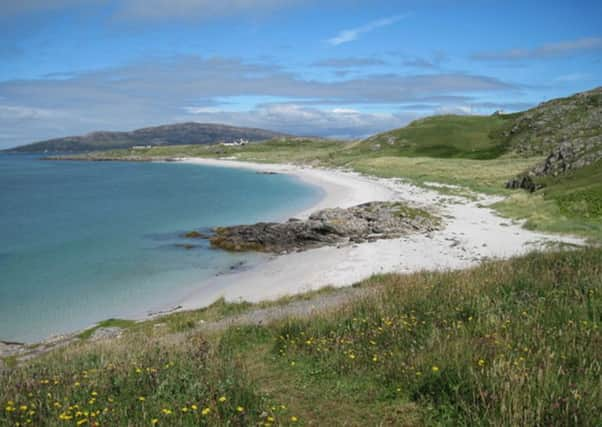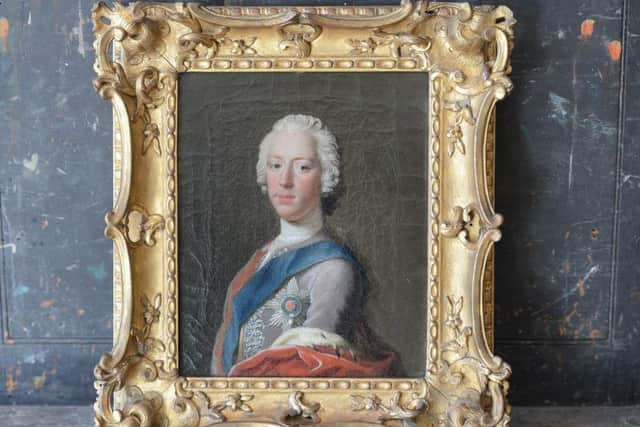OTD 1745: Bonnie Prince Charlie arrives in Scotland


The Prince stepped onto a beach known as Coilleag a’ Phrionnsa -The Prince’s Cockle Strand - where a cairn now marks his arrival.
His landing signalled the end of his 18-day sea voyage and the beginning of the doomed attempt to return the Stuarts to the British throne.
Advertisement
Hide Ad

The young prince left France after giving his father’s agents in Paris the slip. Keen to conceal his movements, he informed them he was going to visit La Trappe monastery near Rouen for a few days.
He was not to return home for another 14 months as he led civil war in the Highlands and Scotland.
On July 5, he set sail from France on the Doutelle with supporters including the Marquis of Tullibardine, his tutor Sir Thomas Sheridan and Angus Macdonald, a banker in Paris.
A second vessel, the Elizabeth, carried around 160 marines, 2,000 muskets and up to 600 French broadswords.
It was attacked on July 6 by the Lion, an English war ship, off the coast of Cornwall. A five hour sea battle followed, with the Elizabeth turning back to France in a “crippled state” after suffering “severe loss” of officers and men, according to James Brown in his 1852 book History of the Highlands.
The Doutelle continued up the west coast of England and finally came into sight of “Long Island” on July 22. The vessel dropped anchor in the strait between South Uist and Eriksay on July 23.
Advertisement
Hide AdThe prince was swiftly taken onto land and the home of the home of tacksman Angus Macdonald.
Brown wrote: “To anticipate that prying curiosity and speculation which the inhabitants of the wester isle always display on the arrival of strangers, the prince’s companions represented him as young Irish priest, a species of visitor by no means uncommon in these islands... priests from the opposite coast of Ireland had been long accustomed to resort for the purpose of giving the islanders that religious instruction....which
Advertisement
Hide Adby the change in the national religion, they had been almost debarred from receiving from the hands of native priests.”
Charles slept in Macdonald’s home on his first night in Scotland and refused to take a bed, given the shortage of sleeping spaces.
After returning to the Doutelle the following morning, the Prince called for Macdonald of Boisdale, the influential brother of the chief of Clanranald, accroding to Brown.
The Prince was reportedly taken aback when Boisdale declined to accompany him to the mainland and declared he would do everything in his power to stop his brother and nephew from getting involved in the mission.
Boisdale also told the Prince that Sir Alexander Macdonald of Sleat believed the Prince should return to France, unless he came with a large number of troops.
The next day, the Doutelle - which had a tent on deck filled with wines and spirits - sailed towards the mainland and dropped anchor at the bay of Lochnanuagh near Arisaig.
Advertisement
Hide AdAccounts suggest that an eagle was spotted hovering above the vessel for several hours, following its course. The Marquis of Tullibardine took this as an “excellent omen”, according to Brown.
Tullibardine reportedly turned to the prince and said: “Sir, I hope this is an excellent omen, and promises good things to us. The king of birds is come to welcome your royal highness upon your arrival in Scotland.”
Advertisement
Hide AdThe prince welcomed a number of guests on board the boat, with letter dispatched and communications received as he worked to raise support from the clans, with him later moving onto a farmhouse near Arisaig.